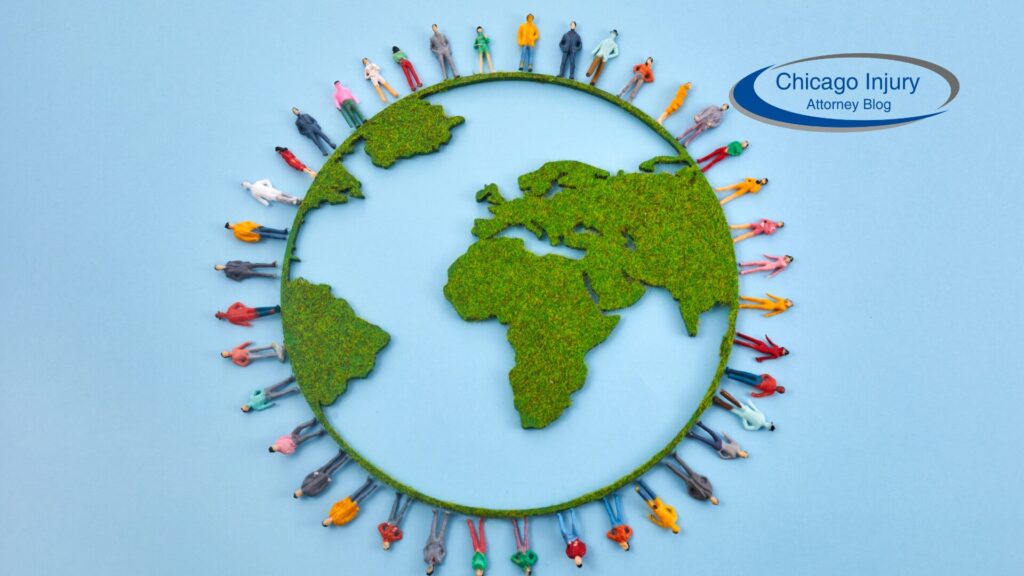Mass torts have become a significant aspect of the legal landscape, with a global impact that cannot be ignored.
In this article, we will delve into the world of mass torts, providing an overview of mass civil litigation, exploring the significance of globalization in mass torts, and examining a case study on Volkswagen litigation.
We will also discuss successful litigation strategies, key practices in handling mass torts, legal representation, financial implications, ethical considerations, regulatory responses, and future trends in mass tort litigation.
Stay tuned to learn more about this complex and evolving area of law.
Key Takeaways:
Globalization has brought about a significant impact on mass torts, with cases like the Volkswagen litigation having a wide-reaching influence on legal systems worldwide.Effective litigation strategies and careful consideration of ethical and regulatory issues are crucial in handling mass torts, which can have significant financial implications for all parties involved.Mass torts present both challenges and opportunities for legal professionals, and staying up-to-date with current trends and best practices is essential for successful representation in these complex cases.
Understanding the Global Impact of Mass Torts
Understanding the global impact of mass torts requires a comprehensive analysis of the legal landscape surrounding widespread civil litigation cases that involve numerous plaintiffs seeking justice against entities responsible for harm or negligence.
These complex cases often involve a multitude of parties, including defendants, plaintiffs, law firms, experts, and regulatory bodies. The intricacies of mass tort litigation extend to various legal jurisdictions, procedural rules, and evidentiary standards, presenting challenges in terms of coordination and cooperation among different legal systems.
The fundamental goal in mass tort cases is to address the harm caused, provide compensation to the affected individuals, and hold the responsible parties accountable.
Introduction to Mass Torts
An introduction to mass torts provides insight into the legal concept of aggregated civil claims where a group of individuals, often represented by personal injury attorneys, collectively seek legal recourse against a common defendant or group of defendants for similar harm or wrongdoing.
Mass tort cases typically involve a large number of claimants who have suffered injuries or damages from a common product, action, or circumstance. These cases differ from individual lawsuits in their scope and complexity, requiring specialized legal expertise to handle the intricate details involved.
Personal injury attorneys play a crucial role in mass tort litigations, guiding and representing the aggrieved parties through the legal process, from initial investigations to settlement negotiations or trial proceedings.
The collaborative nature of mass tort cases fosters a sense of unity among the claimants, as they work together towards achieving justice and holding the responsible parties accountable for the harm caused.
Overview of Mass Civil Litigation
An overview of mass civil litigation encompasses the processes involved in achieving mass settlements, the establishment of multidistrict litigation (MDL) for streamlined legal procedures, and the varied responses from courts in handling complex mass tort cases.
Settlement negotiations act as the initial phase, where parties aim to resolve disputes without trial, often involving extensive talks and compromises. Following successful negotiations,
MDL formation comes into play, consolidating similar cases to efficiently manage pretrial matters. This consolidation helps in avoiding duplicative discovery and conflicting rulings. Once MDL is established, firms strategize on litigation tactics, engage in pretrial discovery, and address motions practice with an aim of securing favorable outcomes. Courts play a crucial role in supervising these procedures, ensuring fair and efficient adjudication across multiple cases.
Significance of Globalization in Mass Torts
The significance of globalization in mass torts is evident in the interconnected nature of legal actions that transcend geographical boundaries, impacting regions like West Virginia and beyond with the ripple effects of mass tort settlements and legal precedents.
Globalization has not only expanded the reach of mass tort cases but has also complicated jurisdictional issues, as multiple legal systems come into play. The cross-border implications of these cases often involve intricate legal processes that require collaboration among different regions and legal frameworks.
Regional dynamics play a crucial role in determining the outcome of mass tort litigations, considering the varying legal standards, cultural nuances, and regulatory environments across different jurisdictions. For instance, the handling of mass tort cases in West Virginia reflects both the state’s legal infrastructure and its historical significance in the realm of litigation.
Case Study: Volkswagen Litigation
A case study on Volkswagen litigation delves into the aftermath of the emissions scandal and the consequential legal battles faced by the automaker, highlighting the court’s responses, settlement negotiations, and the impact on affected stakeholders.
In the court proceedings, Volkswagen faced scrutiny for its use of emissions cheating devices, which led to extensive investigations and legal actions. The settlement agreements reached between Volkswagen and various parties aimed to address the damages caused, compensate affected consumers, and implement measures to prevent such misconduct in the future.
The broader implications of this case extend beyond Volkswagen, impacting the automotive industry as a whole. It raised questions about regulatory oversight, corporate responsibility, and the need for transparent practices to ensure consumer trust. The Volkswagen litigation case has set precedents for mass tort litigation practices, influencing how similar cases are handled and resolved in the legal sphere.
Successful Litigation Strategy
Crafting a successful litigation strategy involves meticulous planning, evidence gathering, and legal expertise to navigate the complexities of mass tort cases and secure favorable outcomes for plaintiffs.
One of the key components of a successful litigation strategy is thorough case preparation. This includes conducting extensive research, gathering relevant documents, and identifying key witnesses to support the plaintiff’s claims. Legal arguments play a crucial role in persuading the court to rule in favor of the plaintiff by presenting relevant case law, statutes, and precedents. Effective negotiation techniques are essential for reaching settlements that are favorable to the plaintiff without the need for a lengthy trial.
Lessons Learned
Reflecting on lessons learned from mass tort litigations provides valuable insights into improving legal representation, client advocacy, and the overall efficacy of addressing complex legal challenges in the realm of personal injury and civil litigation.
One of the key takeaways from past mass tort cases is the importance of staying informed about evolving laws and regulations, as legal landscapes can quickly shift. By keeping abreast of these changes, legal professionals can better adapt their strategies to meet the dynamic needs of their clients. This adaptability is crucial in ensuring that legal teams are equipped to handle the complexities inherent in mass tort cases.
A client-focused approach is essential in mass tort litigations. Recognizing the unique needs and concerns of each client and tailoring legal strategies accordingly can greatly enhance the quality of legal representation and foster stronger client relationships.
Key Practices in Handling Mass Torts
Key practices in handling mass torts revolve around effective legal representation, strategic case management, and proactive engagement with multidisciplinary teams to address the diverse needs of plaintiffs in complex civil litigations.
Effective legal representation is crucial in mass tort cases as it ensures that the rights of numerous plaintiffs are upheld and their voices heard in court. It involves thorough research, meticulous preparation, and skillful advocacy to navigate the complexities of large-scale litigation.
Strategic case management is essential to streamline processes, allocate resources efficiently, and maintain focus on achieving favorable outcomes for the collective group of claimants. By developing a coherent litigation strategy that accounts for the unique dynamics of mass torts, legal teams can optimize their efforts and maximize the chances of success.
Legal Representation in Mass Torts
Legal representation in mass torts plays a pivotal role in advocating for the rights of plaintiffs, collaborating with lead generators to identify potential claimants, and navigating the intricate legal landscape to secure fair compensation for victims of personal injury and negligence.
Mass tort litigations often involve a large number of plaintiffs seeking justice against powerful corporations or entities. In these complex cases, attorneys serve as a guiding force, guiding clients through the litigation process, offering legal counsel, and representing their best interests.
Lead generation is a critical aspect of mass tort cases, as it allows attorneys to reach out to individuals who may have valid claims but are unaware of their legal rights. By working with lead generators, attorneys can connect with potential claimants and provide them with the necessary legal support and representation.
Ethical considerations weigh heavily in mass tort litigations. Attorneys must uphold the highest standards of professional conduct, prioritize the well-being of their clients, and ensure transparency in their legal strategies.
Impact on Legal Systems Worldwide
The impact of mass torts on legal systems worldwide extends to shaping precedents, influencing landmark decisions, and even reaching the highest echelons of judicial review, such as cases heard by the US Supreme Court, marking significant milestones in legal history.
Mass tort litigations have become a focal point in the legal arena, where the ripple effects of complex multi-party cases can be felt far beyond the initial jurisdictions in which they originate. These litigations often transcend national boundaries, illustrating the interconnected nature of modern legal systems. Through in-depth analyses of these cases, legal scholars unearth insights that redefine legal doctrines and set new standards for corporate accountability. These litigations have sparked legislative reforms and policy shifts, demonstrating the power of mass torts to drive systemic change and uphold justice on a global scale.
Challenges and Opportunities in Mass Tort Litigation
Navigating the landscape of mass tort litigation presents a myriad of challenges and opportunities for legal practitioners, requiring adaptability, resilience, and innovation to address complex legal issues while leveraging potential avenues for justice and legal reform.
One of the primary challenges in mass tort litigations revolves around the sheer volume of cases, often involving numerous plaintiffs and defendants, which can lead to lengthy and resource-intensive legal proceedings. Intricate legal procedures and rules governing the consolidation and coordination of cases across multiple jurisdictions can add layers of complexity to the litigation process.
Despite these challenges, there are emerging opportunities for legal practitioners to pioneer new strategies and approaches that can streamline the litigation process and enhance outcomes for all parties involved. The transformative potential of mass tort litigations extends beyond individual cases, influencing broader legal systems and regulatory frameworks, paving the way for systemic changes that can better protect consumer rights and promote accountability in industries.
Financial Implications of Mass Torts
The financial implications of mass torts are multifaceted, encompassing settlement costs, bankruptcy repercussions, and the long-term financial stability of entities embroiled in complex civil litigations, highlighting the pivotal role of financial planning and risk management in legal strategies.
Mass tort cases involve a stark interplay between legal and financial matters, where settlement negotiations play a crucial role in determining the outcomes. These negotiations delve into intricate calculations of compensatory and punitive damages, expert testimony, and class certification issues. The looming shadow of bankruptcy proceedings further complicates the financial landscape, requiring a delicate balance between preserving assets and satisfying liabilities.
The economic ramifications for corporate entities caught in mass tort litigations extend far beyond immediate settlement figures. Stock prices, investor confidence, and reputational damage can all be severely impacted, underscoring the essential need for proactive financial management and strategic foresight.
Ethical Considerations in Mass Tort Cases
Ethical considerations in mass tort cases underscore the paramount importance of upholding professional integrity, client confidentiality, and ethical standards in legal advocacy, especially in high-profile litigations involving entities like Johnson & Johnson and other pharmaceutical giants.
When attorneys represent plaintiffs against powerful corporations, they face intricate ethical dilemmas that demand a delicate balance between zealous advocacy for their clients and adherence to ethical principles. One of the key challenges lies in maintaining a client-centric approach while avoiding conflicts of interest that may arise due to financial considerations or external pressures.
Attorneys must navigate these complexities carefully, always prioritizing the best interests of their clients and ensuring transparency in their legal strategies. The ethical responsibilities extend to disclosing all relevant information, potential risks, and conflicts that could impact the client’s case.
Regulatory Responses to Mass Torts
Regulatory responses to mass torts encompass legislative actions, industry regulations, and governmental interventions aimed at addressing systemic issues, ensuring consumer protection, and holding accountable entities like Volkswagen and 3M for their roles in mass tort litigations.
Government regulations play a pivotal role in overseeing the implementation of safety standards and compliance measures in various industries. These regulations often stem from legislative mandates designed to safeguard public health and well-being. Industry standards act as benchmarks that companies must meet to ensure the quality and safety of their products and services. Corporate accountability measures, such as environmental impact assessments and product testing protocols, are put in place to uphold ethical practices and transparency.
Future Trends in Mass Tort Litigation
Anticipating future trends in mass tort litigation involves examining evolving legal landscapes, technological advancements, and policy changes that may shape the trajectory of civil litigations, with key insights emerging from jurisdictions like Washington D.C. and legal experts such as Philip S. Goldberg.
As the legal field adapts to the complexities of modern society, adapting strategies to deal with emerging issues becomes crucial for legal practitioners. The expansion of mass tort litigations is not only influenced by legislative reforms but also by societal attitudes towards compensation for damages. For instance, the growing awareness of consumer rights and environmental protection has led to an increase in lawsuits related to product liability and pollution. Legal professionals are closely monitoring these developments to craft innovative approaches in handling mass tort cases.
Frequently Asked Questions
What are mass torts and how do they differ from other types of tort cases?
Mass torts refer to civil lawsuits that involve a large group of plaintiffs who have suffered harm from the same product or event. These cases are typically brought against a common defendant, such as a pharmaceutical company or manufacturer. Unlike typical tort cases, which involve individual plaintiffs, mass torts involve large numbers of plaintiffs who have been affected in a similar way.
How does the global impact of mass torts affect personal injury victims in Chicago?
The global impact of mass torts means that personal injury victims in Chicago may be affected by the actions of companies and manufacturers from all over the world. This can make it more difficult to hold these defendants accountable and recover compensation for their injuries. However, with the help of experienced lawyers, victims can still pursue justice and obtain the compensation they deserve.
What are some examples of mass torts that have had a global impact?
Some examples of mass torts that have had a global impact include the Volkswagen emissions scandal, the opioid crisis, and defective medical devices such as the DePuy hip implant. These cases have affected individuals and communities all over the world, highlighting the importance of understanding the global impact of mass torts.
What are some of the challenges in pursuing a mass tort case on a global scale?
Pursuing a mass tort case on a global scale can be challenging due to varying laws and regulations in different countries, language barriers, and cultural differences. Additionally, it can be difficult to gather evidence and locate witnesses in other countries. This is why it is crucial to work with a law firm that has experience in handling global mass tort cases.
How can a lawyer help individuals affected by mass torts understand their rights and seek justice on a global scale?
A lawyer can provide valuable guidance and support to individuals affected by mass torts by helping them understand their rights and the legal options available to them. They can also gather evidence, locate witnesses, and navigate the complex legal landscape of pursuing a global mass tort case.
What steps can individuals take to protect themselves and their loved ones from the impact of mass torts?
To protect themselves and their loved ones from the impact of mass torts, individuals can stay informed about potential dangers of products and seek legal advice if they have been harmed. They can also research companies and manufacturers before purchasing products and report any adverse effects to the appropriate authorities. Staying vigilant and informed can help prevent and address the global impact of mass torts.





